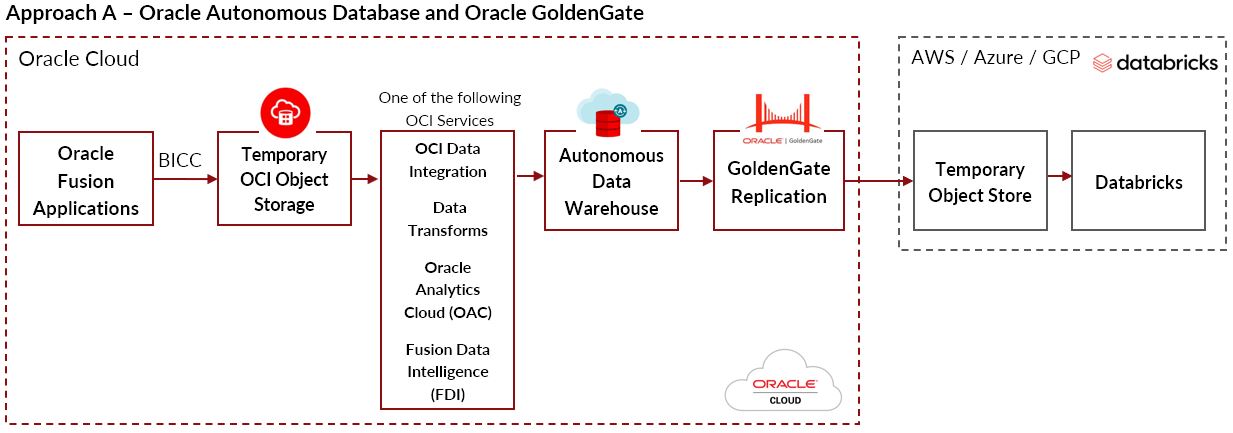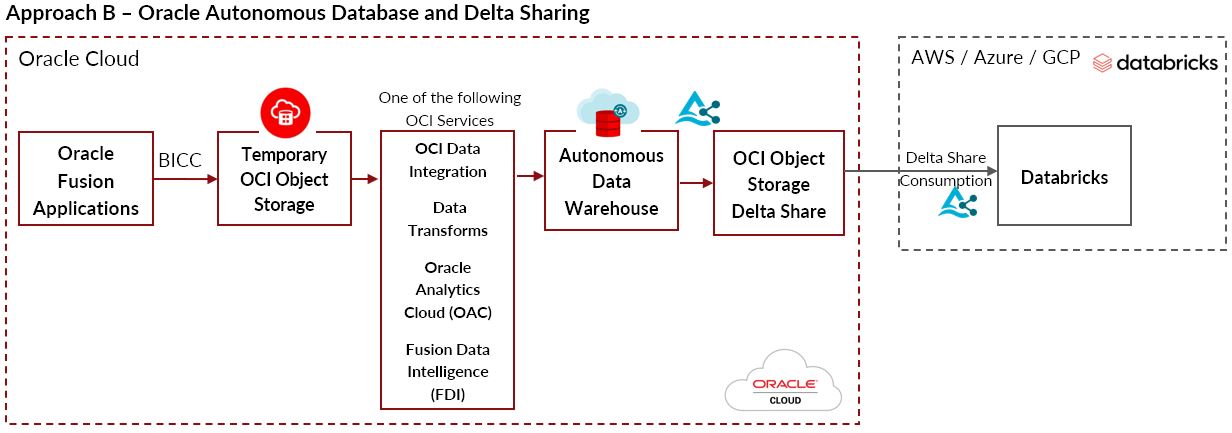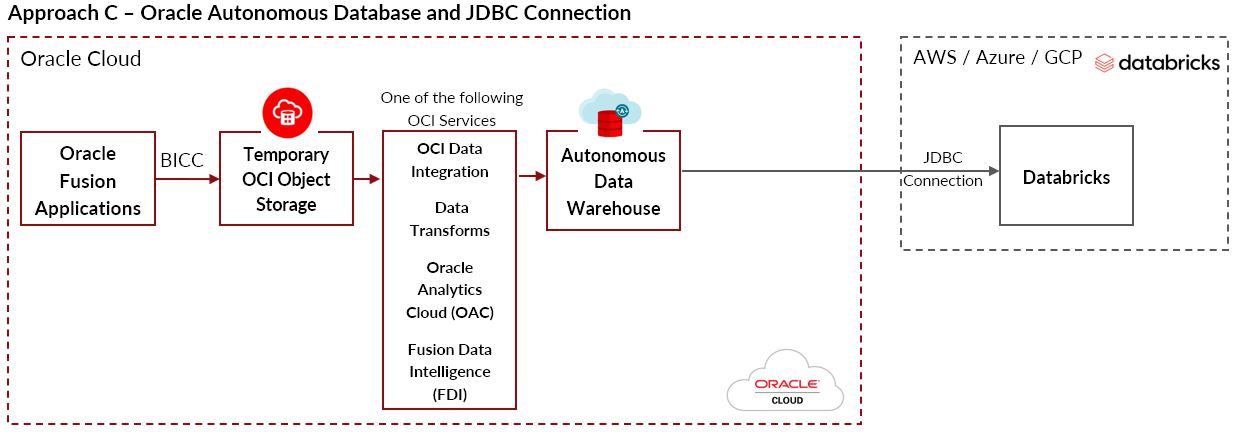Connecting to Oracle Fusion Cloud Applications data from external non-Oracle systems, like Databricks, is not feasible for bulk data operations via a direct connection. However, there are several approaches to making Oracle apps data available for consumption from Databricks. What makes this task less straightforward is the fact that Oracle Fusion Cloud Applications and Databricks exist in separate clouds. Oracle Fusion apps (ERP, SCM, HCM, CX) are hosted on Oracle Cloud while Databricks leverages one of AWS, Azure or Google Cloud. Nevertheless, there are several approaches that I will present in this blog on how to access Oracle Apps data from Databricks.
While there are other means of performing this integration than what I present in this post, I will be focusing on:
- Methods that don’t require 3rd party tools: The focus here is on Oracle and Databricks technologies or Cloud services.
- Methods that scale to large number of objects and high data volumes: While there are additional means of Fusion data extraction such as using REST APIs, OTBI, or BI Publisher, these are not recommended methods for handling large bulk data extracts from Oracle Fusion and are therefore not part of this analysis. One or more of these techniques may still be applied though, when necessary, and may co-exist with the approaches discussed in this blog.
The following diagrams summarize four different approaches on how to replicate Oracle Fusion Apps data in Databricks. Each diagram highlights the data flow, and the technologies applied.
- Approach A: Leverages Oracle Autonomous Data Warehouse and an Oracle GoldenGate Replication Deployment
- Approach B: Leverages Oracle Autonomous Data Warehouse and the standard Delta Sharing protocol
- Approach C: Leverages Oracle Autonomous Data Warehouse and a direct JDBC connection from Databricks.
- Approach D: Leverages a Perficient accelerator solution using Databricks AutoLoader and DLT Pipelines. More information is available on this approach here.
Choosing the right approach for your use case is dependent on the objective of performing this integration and the ecosystem of cloud platforms that are applicable to your organization. For guidance on this, you may reach Perficient by leaving a comment in the form below. Our Oracle and Databricks specialists will connect with you and provide recommendations.






Hi Perficient team,
I have an AWS Databricks and need to load Oracle Fusion Financial data into databricks. This needs to load the historical data load in the initial phase, then ongoing data load daily.
I’d appreciate your help on suggesting the efficient way of loading this data into AWS S3 landing bucket.
Regards,
Shima
Hi Shima, You can use a combination of Fusion BI Cloud Connector to extract to OCI Object Store then use the boto3 python SDK to fetch files. OCI object store supports s3 compatible APIs, so you can leverage that SDK to transfer data extracts to AWS S3.